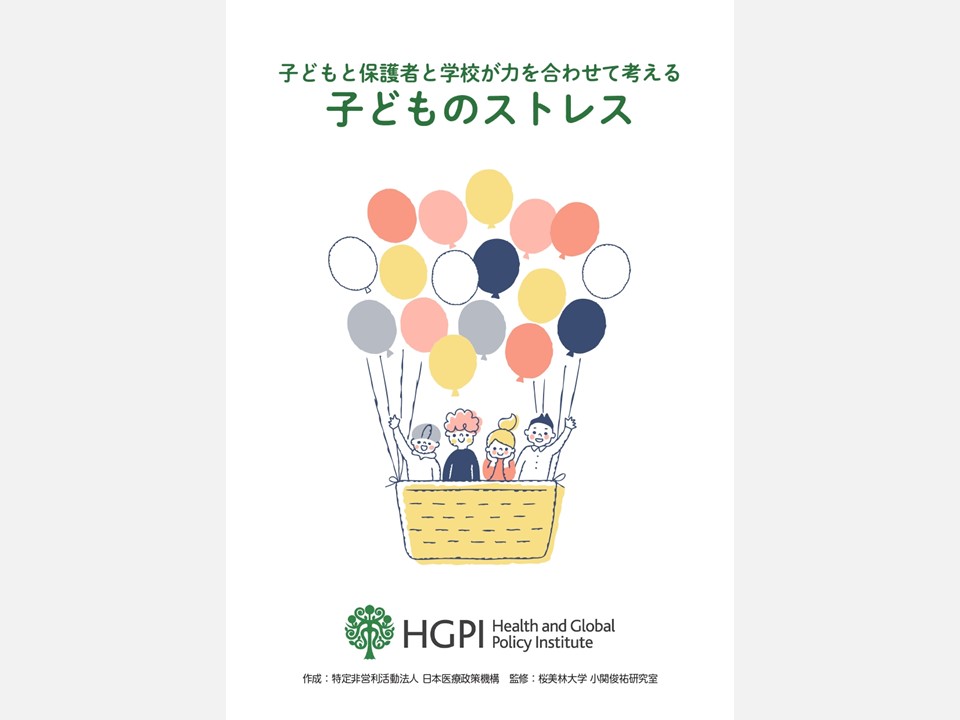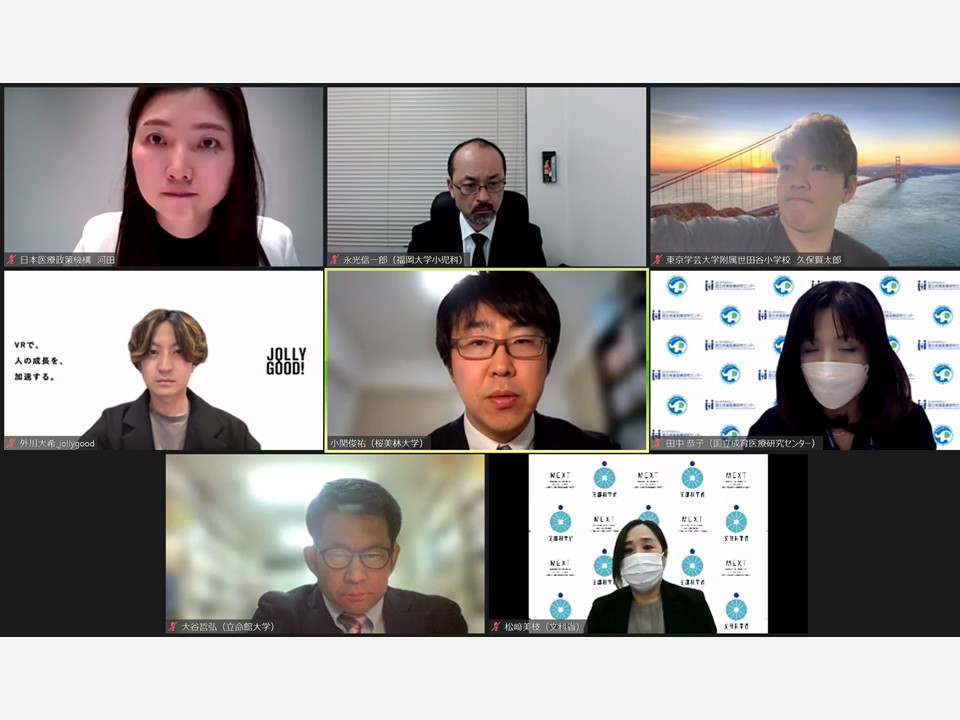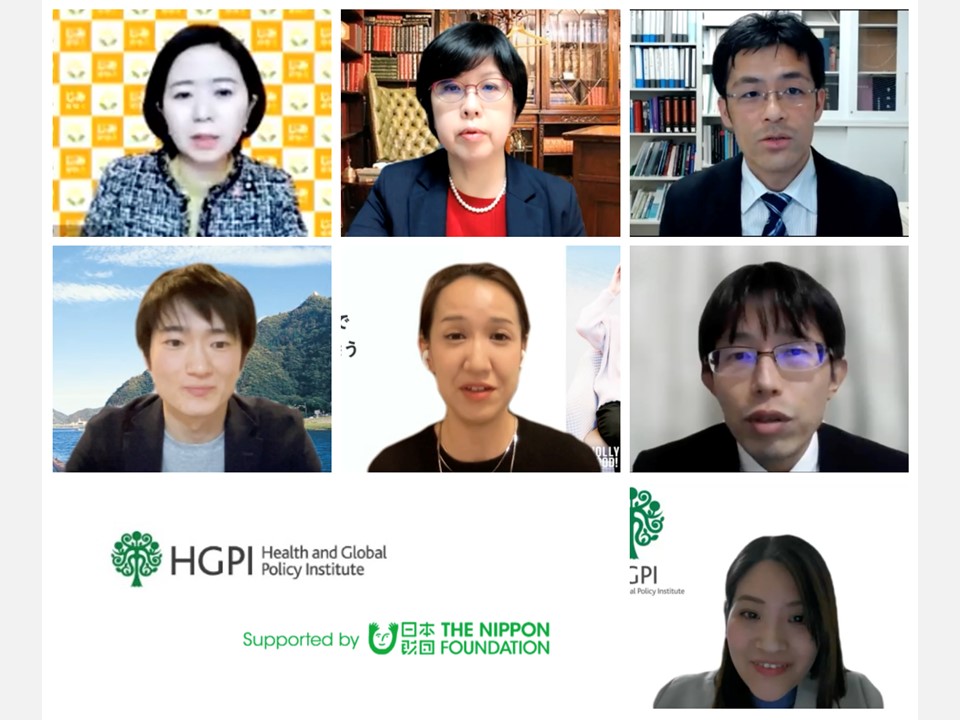[Recommendations] Four Recommendations for Prevention and Support in Children’s Mental Health – HGPI’s View on Children’s Mental Health Policy (June 24, 2022)
date : 6/24/2022
Tags: Child Health, Mental Health
![[Recommendations] Four Recommendations for Prevention and Support in Children’s Mental Health – HGPI’s View on Children’s Mental Health Policy (June 24, 2022)](https://hgpi.org/en/wp-content/uploads/sites/2/ch-20220624-top.jpg)
With funding from the Nippon Foundation, the Health and Global Policy Institute (HGPI) Child Health Project conducted and published a report on an initiative titled “Building a Mental Health Program for Children and Verifying Its Effectiveness.” We then presented the four following recommendations for supporting children’s mental health which are based on the verification results and discussions centered around multi-disciplinary specialists held at our expert meetings.
Four recommendations for prevention and support in children’s mental health
Recommendation 1:
Introduce practical mental health education in schools for all elementary and middle school students and provide continuous follow-up consultations.
- Mental health education must be further expanded so high needs among elementary and middle school students can be met.
- From the perspective of prevention, a framework providing equitable education based on cognitive behavioral therapy (CBT) to all elementary and middle school students is necessary.
- To ensure that the information elementary and middle school students learn during mental health education takes root in their daily lives, it will be necessary to train teachers and supporting psychologists to improve mental health literacy and to provide students with follow-up consultations on a continuous basis.
Recommendation 2:
Advance multi-disciplinary collaboration in communities that aims to provide children with comprehensive preventive mental health care and support.
- Instead of relying on schools and teachers to provide children’s mental health support, schools should strengthen ties with outside parties and become more open. Society-wide support and multi-professional collaboration that transcends regions and welfare, healthcare, and other fields will also be necessary.
- All adults involved with children and especially those in supporting professions must be provided with educational opportunities to learn about mental health.
- Data related to children’s health should be shared across fields and among organizations to encourage deeper collaboration and promote effective support and interventions.
Recommendation 3:
Build a system that delivers preventive mental health care and early detection and intervention to all children regardless of their socioeconomic circumstances at home.
- Early detection and intervention for mental health issues may make it possible to bridge the gaps among education, healthcare, welfare, and other forms of support irrespective of differing socioeconomic circumstances among families. This can be achieved with health examinations provided after children enter school, especially adolescent health checkups, and through mental health support provided with digital technology. Moving forward, these practices should be further distributed and expanded with a basis in evidence.
- Efforts to provide accurate information from specialists and to disseminate stories about mental health from members of younger generations should be promoted. All people including children should be made aware of the importance of mental health as an issue that directly affects them.
Recommendation 4:
Eliminate fragmentation among ministries and agencies and across fields and distribute and utilize resources in an evidence-based, efficient manner with the goal of advancing policies that meet the needs of elementary and middle school students.
- Instead of isolating and responding to issues at separate ministries, agencies, or departments, policies for mental health that consider the individual and entire life course should be advanced.
- A mental health system designed for the long term and based on scientific evidence should be implemented.
The recommendation leaflet at the bottom is published in Japanese only.
Top Research & Recommendations Posts
- [Policy Recommendations] The Path to a Sustainable Healthcare System: Three Key Objectives for Public Deliberation (January 22, 2026)
- [Research Report] The 2025 Public Opinion Survey on Healthcare in Japan (March 17, 2025)
- [Research Report] Perceptions, Knowledge, Actions and Perspectives of Healthcare Organizations in Japan in Relation to Climate Change and Health: A Cross-Sectional Study (November 13, 2025)
- [Research Report] The 2023 Public Opinion Survey on Satisfaction in Healthcare in Japan and Healthcare Applications of Generative AI (January 11, 2024)
- [Policy Recommendations] Reshaping Japan’s Immunization Policy for Life Course Coverage and Vaccine Equity: Challenges and Prospects for an Era of Prevention and Health Promotion (April 25, 2025)
- [Policy Recommendations] Developing a National Health and Climate Strategy for Japan (June 26, 2024)
- [Policy Recommendations] Achieving Equity in Multidisciplinary Pain Treatment and Support Systems for Pain Management (March 31, 2023)
- [Research Report] Survey of Japanese Physicians Regarding Climate Change and Health (December 3, 2023)
- [Public Comment Submission] “Assessment Report on Climate Change Impacts in Japan (Draft Overview)” (December 24, 2025)
- [Research Report] The Public Opinion Survey on Child-Rearing in Modern Japan (Final Report) (March 4, 2022)
Featured Posts
-
2026-01-09
[Registration Open] (Hybrid Format) Dementia Project FY2025 Initiative Concluding Symposium “The Future of Dementia Policy Surrounding Families and Others Who Care for People with Dementia” (March 9, 2026)
![[Registration Open] (Hybrid Format) Dementia Project FY2025 Initiative Concluding Symposium “The Future of Dementia Policy Surrounding Families and Others Who Care for People with Dementia” (March 9, 2026)](https://hgpi.org/en/wp-content/uploads/sites/2/dementia-20260309-top.png)
-
2026-02-05
[Registration Open] (Webinar) The 141st HGPI Seminar “Current Status and Future Prospects of Korea’s Obesity Policy: Voices of People with Lived Experience in Policy Promotion” (March 3, 2026)
![[Registration Open] (Webinar) The 141st HGPI Seminar “Current Status and Future Prospects of Korea’s Obesity Policy: Voices of People with Lived Experience in Policy Promotion” (March 3, 2026)](https://hgpi.org/en/wp-content/uploads/sites/2/hs141-top-1.png)
-
2026-02-06
[Research Report] AMR Policy Update #5: Cancer Care and AMR (Part 2)
![[Research Report] AMR Policy Update #5: Cancer Care and AMR (Part 2)](https://hgpi.org/en/wp-content/uploads/sites/2/HGPI_20260204_AMR-Policy-Update-5.png)







